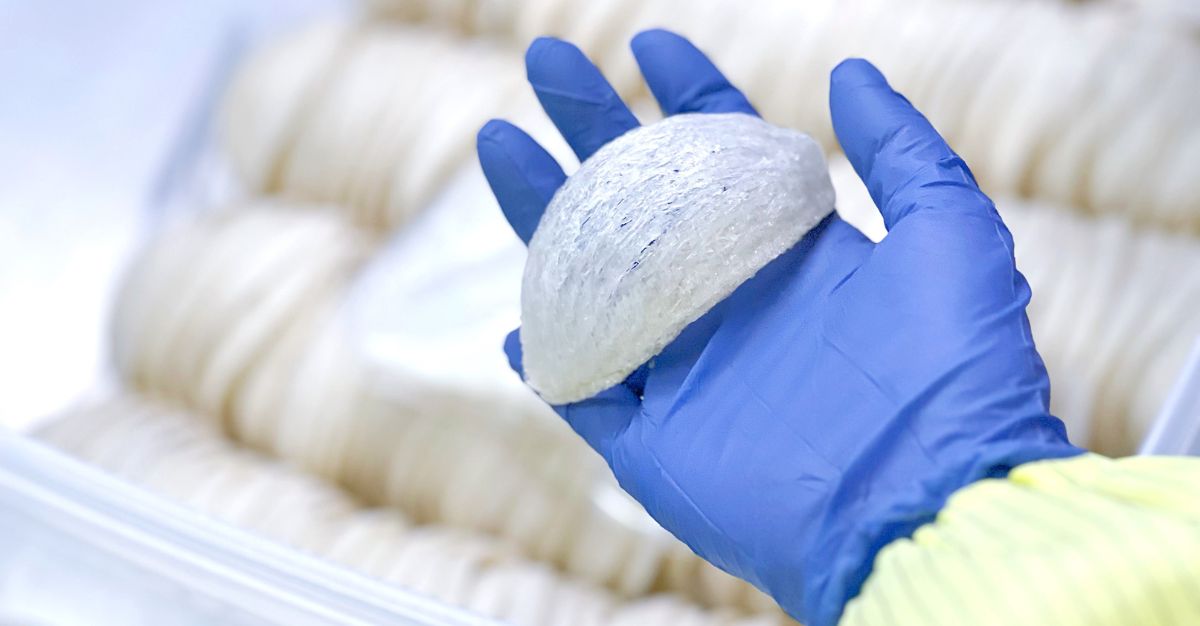
Pregnancy is a critical period in a woman’s life, and it’s substantial to maintain a healthy diet to support the growth and development of the foetus. Bird’s nest is a kind of pure natural, high nutritional content, and has been inherited as a healthy food since ancient times.
Interest in the possible advantages of bird’s nest for expectant mothers has risen recently. However, there is also some concern about its safety and potential side effects during pregnancy. In this guide, we will explore the potential advantages of consuming bird’s nest during pregnancy, the safety considerations, and how to integrate bird’s nest into your diet safely and healthily.
10 Reasons Why Bird’s Nest Good For Pregnancy
Here are some potential reasons why consuming bird’s nest during pregnancy can be advantageous:
1. RICH IN NUTRIENTS
Bird’s nest is rich in essential nutrients such as amino acid, water-soluble protein, calcium, iron, and various vitamins essential for a healthy pregnancy.
2. MAY HELP PREVENT MORNING SICKNESS
Bird’s nest consumption shows promise in preventing or alleviating symptoms of morning sickness, which is also known as nausea and vomiting of pregnancy. Its nutritional composition, including high protein content and bioactive compounds, may contribute to relieving the discomfort of pregnancy-related nausea and vomiting.
3. SUPPORTS LACTATION
Bird’s nest is believed to help support lactation and increase milk production in breastfeeding mothers.
4. SUPPORTS HEALTHY FETAL DEVELOPMENT
The nutrients in bird’s nest, such as calcium and iron, are important for fetal development, including bone growth, brain development and healthy blood flow.
5. ELEVATES IMMUNE SYSTEM
Glycoproteins in bird’s nest boost the immune system and defend the body from dangerous microorganisms.
6. ENHANCES SKIN HEALTH
Bird’s nest contains compounds that help promote skin suppleness and reduce the appearance of fine lines and wrinkles, even though skin changes are common during pregnancy.
7. PROMOTES HEALTHY DIGESTION
Bird’s nest is believed to contain compounds that can help improve digestion and reduce constipation, which is a common problem during pregnancy.
8. DECREASES INFLAMMATION
Antioxidants and anti-inflammatory substances found in bird’s nest may aid in lessening inflammation in the body.
9. MAY IMPROVE OVERALL MOOD
Bird’s nest contains compounds that may help regulate hormones and improve overall mood, which can be particularly beneficial during pregnancy’s emotional ups and downs.
10. TRADITIONAL USE
Bird’s nest has been used in traditional Chinese medicine for centuries to support overall health and well-being, including during pregnancy. Its long history of use raises the possibility that it is a safe and helpful supplement for expectant mothers.
Is Consuming Bird’s Nest Healthy While Pregnant?
Although eating a bird’s nest during pregnancy can be beneficial, it’s crucial to consider the product’s safety and quality.
The rich protein, calcium, and other minerals found in bird’s nests can help to promote healthy fetal development and overall maternal health throughout pregnancy. In addition to supporting appropriate weight gain during pregnancy, bird nests contain a high amount of amino acids that promote the growth of the baby’s organs and tissues as well as improve immunity.
Consuming bird’s nests may also assist in balancing hormones, support lactation, and lower the risk of gestational diabetes, according to some research.
It’s crucial to remember that bird’s nest is a costly and uncommon food item. The manner in which it is gathered, prepared, and kept can have a significant impact on its quality and safety. Concerns have also been raised regarding the possibility of dangerous contaminants like germs and heavy metals being present.
For the safety and quality of bird’s nests, it is advisable for pregnant women to select reliable brand with GMP, MeSTI, VHM, and HACCP certifications. Careful preparation is essential before consumption, and consulting with a doctor regarding individual health needs is recommended prior to incorporating bird’s nest into the diet.
How Frequently Can a Pregnant Woman Take Bird’s Nest?
The frequency at which a pregnant woman can consume bird’s nest may depend on various factors such as individual health status, the quality and safety of the bird’s nest, and the recommended dosage. Generally, it is recommended that pregnant women consume bird’s nest in moderation and avoid excessive intake.
To meet the recommended protein intake during pregnancy, the World Health Organization (WHO) advises pregnant women to consume approximately 1.1 grams of protein per kilogram of body weight per day. Bird’s nest, being a rich source of protein, can contribute to fulfilling this requirement. If not allergic to the protein, pregnant women are encouraged to consume bird’s nests 3-4 times a week, with each serving ranging from 3 to 5 grams. For optimal results, daily consumption of bird’s nests is recommended.
Before including bird’s nest in their diet, pregnant women should get advice from a healthcare professional. They should also abide by that professional’s advice regarding how frequently to consume it. To guarantee the appropriate intake of all necessary nutrients throughout pregnancy, keeping a balanced and diverse diet is crucial.
CAN A TODDLER EAT OR DRINK BIRD’S NEST?
Bird’s nests can be introduced to the diet of one-year-old babies, provided they are not allergic to protein. It is recommended to begin with a small amount, starting with 2-3 teaspoons per serving. Over time, the quantity can gradually increase to accommodate their growing nutritional needs. For toddlers aged 2 years, a serving size of approximately 30-40 ml is suitable, while for 3-year-olds, a slightly larger portion of 40-60ml can be offered.
When incorporating bird’s nests into the diet of young children, it is advised to maintain a frequency of 2-3 times per week. This approach ensures a balanced and varied nutritional intake while allowing the child’s palate to adapt to different tastes and textures. As always, it is essential to monitor the child for any signs of allergies or adverse reactions and consult with a healthcare professional for personalised dietary guidance.
Summary
To summarise, consuming bird’s nest during pregnancy can be a beneficial addition to a healthy and balanced diet. Its rich nutritional profile provides essential nutrients such as protein, calcium, and amino acids, which can support healthy foetal development and maternal health. Furthermore, research suggests that consuming bird’s nest may also help to regulate hormones, reduce the risk of gestational diabetes, and support lactation.
However, it’s essential to consider the safety and quality of the bird’s nest and confer with a healthcare provider before including it in your diet. With its unique texture, luxurious history, and potential health benefits, bird’s nest may be a fascinating and nourishing addition to your pregnancy journey.









